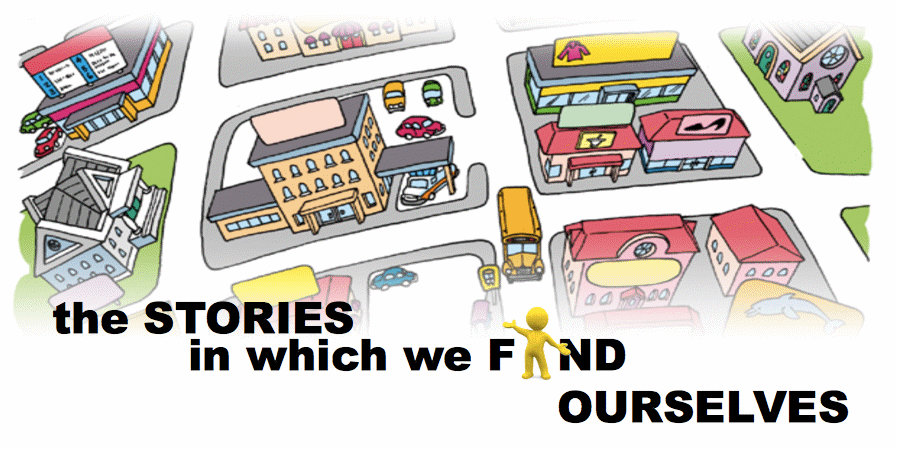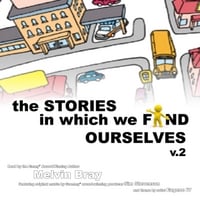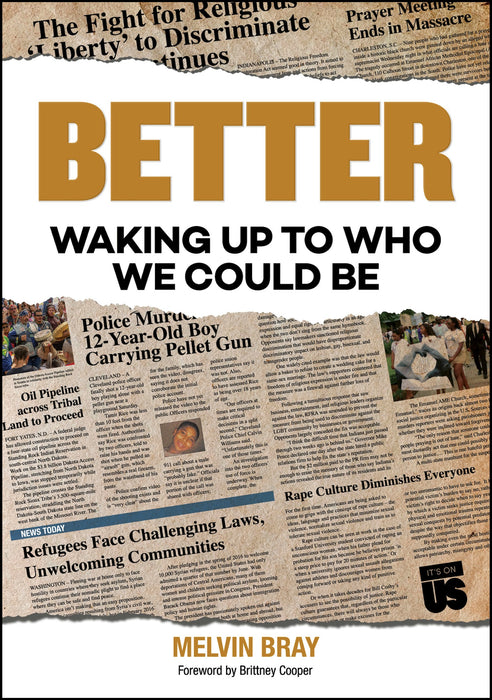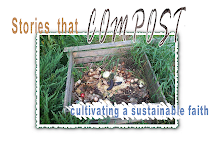God With Us—Episode 1
(taken from Genesis 4—a story of creation)
The story of the talking snake is often told as the story of how sin entered the world, and perhaps it is—if not in terms of an exact event, definitely the story of how humans foolishly make room for sin time and time again. However, neither change nor changeability were sin. So even though much changes after the man and the woman's encounter with the talking snake, the creation saga says nothing to suggest that before this point the world was static and sterile, unchangeable and unchanging. To the contrary, the way the stories are told, life was full of promise and possibility, action and adaptability. God would make a move (God created); then humanity would make a move (humanity named): Creator initiating, creation responding, creation initiating, Creator responding: round and round it goes. And if the creation stories are given their due, these moves had likely been happening for some time: all creation growing, learning, evolving, changing.
Perhaps the most impressive thing about the creation saga is that no matter how poor humanity's choices are Elohim chooses to come with them. They never endure the consequences of their short-comings alone. In fact, Elohim never takes back her initial judgment that, as far as she is concerned, humanity is "good". The man and the woman's choices and misconceptions haven't changed Elohim's mind; the man and the woman just misplace their God-given imaginations for that good. I guess it's true: what we don't use, we lose. But that's not to say it has to be lost forever.
So Eden becomes unwelcoming or uninhabitable. The man and the woman are forced out into the wilderness to make their way in the world, and where is God? Right there coaching them through it.
I can imagine Elohim initiating a conversation that goes something like, "So where are we going?"
"What do you mean 'we?'"
"I'm going with you, of course."
"But your place is there, back in the garden, back in paradise."
"Says who? If anything, I made that for you. But I also made all the rest of this, and my hopes for you out here are no less than in there."
As if to prove Elohim's good intentions, "the man" and "the woman"—who for the first time Hebrew storytellers give the names Adam and Eve—are in short order blessed with children. These children, referred to as Cain and Abel, represent a kind of second generation in humanity's experience. No more hunter-gatherers, for the land which they now occupy cannot sustain this way of life, humanity now must figure out how to survive in new ways, and the new generation does. In fact, they figure out two different ways of doing so—farming and herding.
Now, you may be thinking, "What's so innovative about farming and herding?" What has become so familiar to us as to be considered old-fashion was at one time a brand new experiment. Imagine planning and plotting and cultivating the food you want for the first time, not just eating what happens to grow up voluntarily. It was revolutionary. Before, people would go to an area where berries grew, if they wanted berries. Now they could grow berries where they stood, right next to peaches and tomatoes and cucumbers, and it didn't matter whether anything edible had ever grown in that place before.
Just as extraordinary was notion of herding animals. Before, animals used to roam instinctively in search of food and water, migrating from place to place at will with the seasons. Now, for the first time, people sought to manage, even override, these natural instincts, keeping particularly useful groups of animals together in one place, driving them from watering hole to field according to a schedule and not instinct. The animals chosen for herding were animals of utility: cattle for hide, sheep for wool, goats for milk and all three for meat. There were also horses and camels for riding and carrying supplies. These animals naturally traveled in groups, were not predatory and ate what grew voluntarily.
In some sense, herding and farming seem a natural pair. Those of us who do neither often think of them as going together, because so much of the comfort and convenience of our existence is dependent on a combination of both. It's hard to imagine society without the bounty that both farming and herding brings—from shoes to books. But just like both/and is a choice, so is either/or.
Cain and Abel represent what became competing ways of life. One horticultural (with a preference for farm life and growing plants), one pastoral (with a preference for shepherding and raising animals). One stationary, one nomadic. One that eventually made way for the building of cities and the owning of land and, eventually, the hoarding of resources; the other that preserved ancestral rights to tribal regions and shared resources.
If you're paying attention, it's not hard to deduce at least two necessities over which these two groups, the Cains and Abels, might have come into contention. What are two things both farmers and herders need plenty of? That's right: land and water. And the big question seemed to be: Who had the rights to what? The farmers and the herders fought over it, and the farmers won. The herders, the ones with whom the Hebrews later most identified, weren't too happy about that and expressed their bias against the outcome in the stories they told their children.
The story goes that God had a better appreciation for the labors and produce of herders than for the sweat and yield of farmers. Sure, God had created everything and pronounced it was all good, but by now God was playing favorites. God said, "So what I told everything to be fruitful and multiply? Who cares I pretty much started this whole farming trend by planting a garden and asking Adam and Eve to tend it? Today all that changes! I'm now all for people who raise things and less for people who grow things. I'm not going so far as to say I don't 'love' farmers anymore; I'm just saying that aside from keeping them alive, they're pretty much on their own." So when Abel brought a young lamb before God to thank her for his bounty, God smiled and Abel's flock multiplied. However, when Cain lifted up his fruit before God to thank her for what he was able to eek out of the harsh soil, God seemed to shrug and cultivating the land for the crops Cain wanted seemed to never get any easier.
Not surprisingly, Cain was a little miffed. "Why should God prefer lambs over vegetables?" Cain thought.
And the way the story is told, God said to Cain, "Why are you angry, and why has your countenance fallen? If you do well, will you not be accepted? And if you do not do well, sin is lurking at the door; its desire is for you, but you must master it."
"'Master it.' Master what? What does she mean 'do well?' I'm just as faithful in my work as Abel," Cain muttered. He was so confused.
And his parents didn't make it any easier. "Why can't you be more like Abel and just accept that the time for gardening is past?" they said. "Now we must roam and accept our punishment for abusing the freedom God gave us in Eden. Sure, she promised to be with us, but we still have to roam."
One day Cain was feeling particularly low as he struggled plowing a field, and I imagine that his brother came to him calling himself trying to help. I'm sure Abel didn't mean to reinforce all of Cain's negative feelings, but all Cain could hear ringing in his ears was "Why can't you be more like Abel?" The brothers got into a fight. Cross words were spoken. One thing led to another, and then they came to blows! Cain lost control; Abel wound up dead.
As he lie on the ground panting next to the unnaturally still body of Abel, Cain may not have realized that his brother was dead right away. In that brief moment of introspection he probably asked himself, "What on earth are we doing?" But it was too late—for everyone—to take it all back.










No comments:
Post a Comment